

Former President Barack Obama and former Vice President Kamala Harris on Thursday each delivered remarks on the state of the country under President Donald Trump’s second term and criticized the administration’s recent actions.
Obama, who preceded Trump’s first term, sharply criticized Trump’s efforts to reshape the federal government, crackdown on immigration and dissent, and intimidate news outlets and the legal establishment.
“So, this is the first time I’ve been speaking publicly for a while,” Obama said during an on-stage interview at Hamilton College. “I’ve been watching for a little bit.”
“Imagine if I had done any of this,” Obama said, later adding: “It’s unimaginable that the same parties that are silent now would have tolerated behavior like that from me, or a whole bunch of my predecessors.”
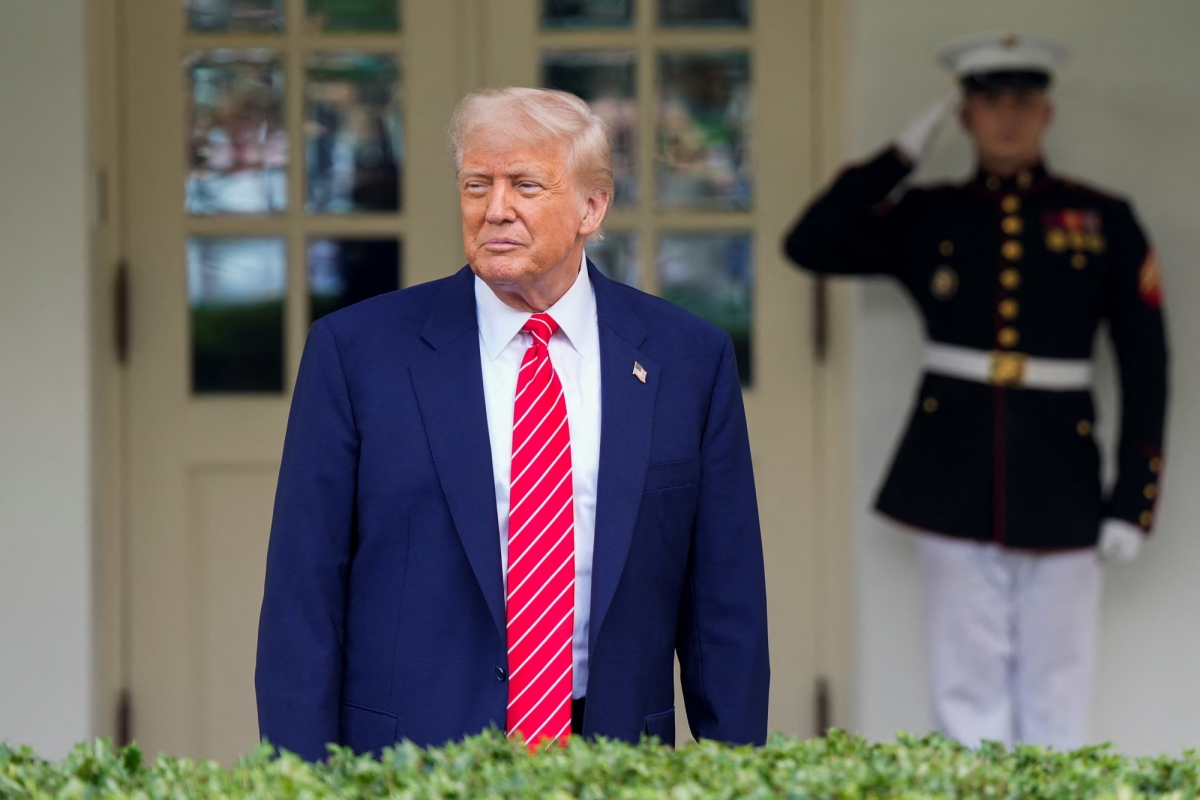
Obama went on to say that he doesn’t think Trump’s new tariff announcement “is going to be good for America.” However, he said that he is more concerned with what he described as the White House’s infringement of rights.
“I’m more deeply concerned with a federal government that threatens universities if they don’t give up students who are exercising their right to free speech,” Obama told the crowd of college students. “The idea that a White House can say to law firms, if you represent parties that we don’t like, we’re going to pull all our business or bar you from representing people effectively. Those kinds of – that kind of behavior is contrary to the basic compact we have as Americans.”
Obama had previously warned of the dangers facing the country if Trump were reelected, while campaigning for Harris during the final stretch of the 2024 presidential race. “Just because (Trump) acts goofy,” the former president said at the time, “doesn’t mean his presidency wouldn’t be dangerous.”
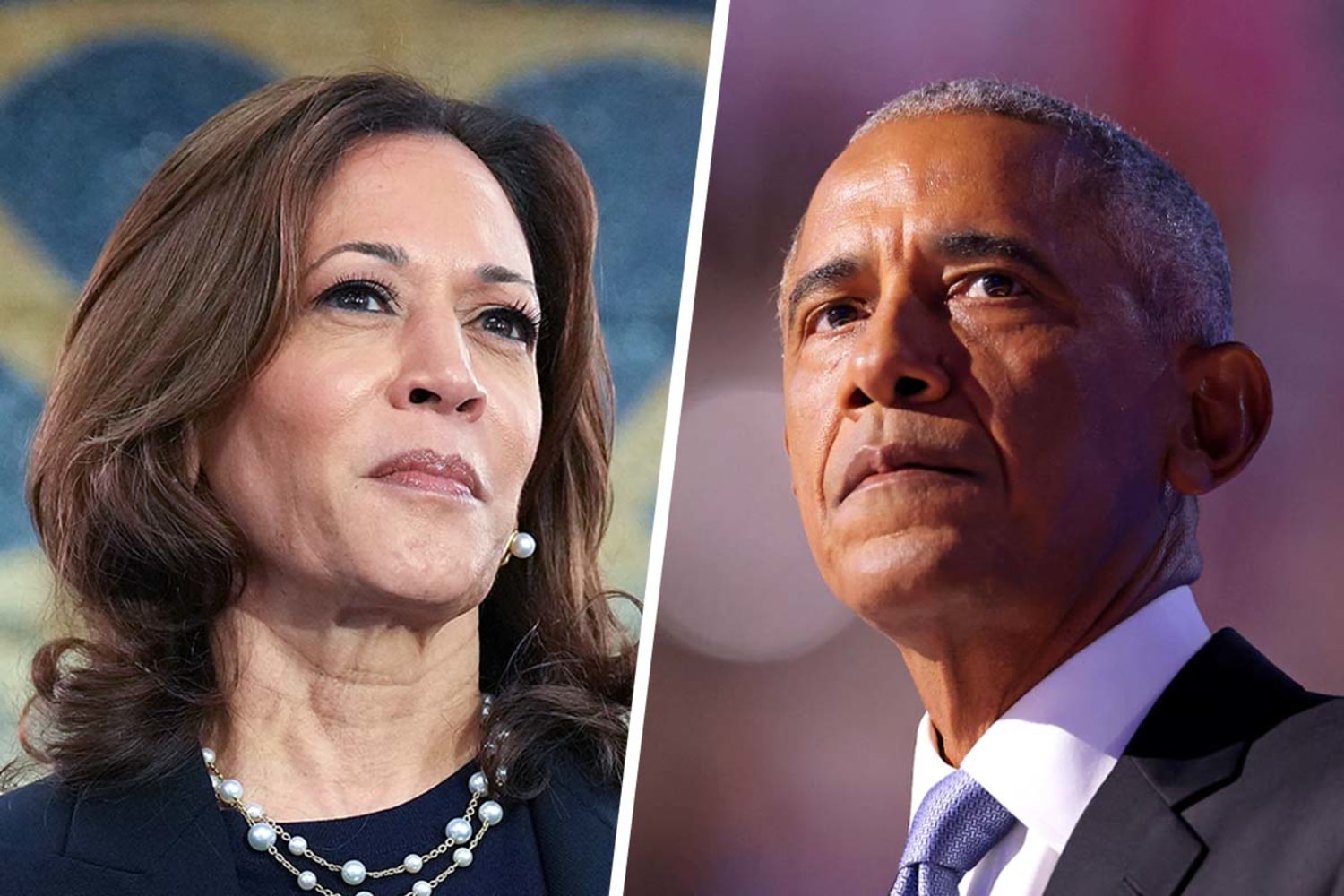
In separate remarks, Harris on Thursday said Trump’s moves since he returned to office were largely predictable.
“There were many things we knew would happen,” Harris said in a video of her remarks at the Leading Women Defined Summit. “I’m not here to say I told you so,” she added before laughing.
Harris said she recognizes that Trump’s return to the Oval Office has created “a great sense of fear.”
“We are seeing organizations stay quiet. We are seeing those who are capitulating to clearly unconstitutional threats. And these are the things that we are witnessing, each day in the last few months in our country and it understandably creates a great sense of fear,” Harris said.

Earlier this week, Trump announced a deal with the law firm that employs former second gentleman Doug Emhoff – Willkie Farr & Gallagher – which the president said includes the firm agreeing to provide at least $100 million in pro bono legal services throughout his second term. It was another example of high-profile firms cutting deals with the White House as Trump has targeted firms that have done work with his perceived political enemies.
Before the Willkie agreement was announced, Emhoff addressed the matter saying, “The rule of law is under attack. Democracy is under attack. And so, all of us lawyers need to do what we can to push back on that.”
Harris’ Thursday remarks, video of which were first reported by MSNBC, are her most direct comments since the start of Trump’s second term.

The former vice president, who lost to Trump in the November election, went on to say that while fear is “contagious,” so is courage.
“Fear has a way of being contagious. When one person has fear, it has a way of spreading to those around them and spreading. And we are witnessing that, no doubt,” Harris said at the gathering of female leaders of color.
“But I say this also, my dear friends, courage is also contagious,” she added.
Billionaires are turning on Trump
Wealthy business leaders are turning on US President Donald Trump over his plan to impose a colossal set of tariffs on America’s trading partners, as losses mount on stock markets around the world.

Billionaire investor Bill Ackman, who endorsed Trump’s 2024 presidential bid, warned Sunday that going ahead with the new tariffs was tantamount to launching an “economic nuclear war.”
On Wednesday, Trump said he would impose significantly higher “reciprocal” tariffs on dozens of countries that have the highest trade imbalances with the United States.
In a post on X, Ackman said “business investment will grind to a halt, (and) consumers will close their wallets” if the new levies do indeed come into force. “We will severely damage our reputation with the rest of the world that will take years and potentially decades to rehabilitate,” he added in the post, which was viewed 10.6 million times.

nless Trump changes tack, “we are heading for a self-induced, economic nuclear winter, and we should start hunkering down,” the CEO of Pershing Square Capital Management warned.
“What CEO and what board of directors will be comfortable making large, long-term economic commitments in our country in the middle of an economic nuclear war?” he said, adding that “the president is losing the confidence of business leaders around the globe.”
Already Trump’s baseline 10% tariff on all goods imports into the US went into effect Saturday, and dozens of economies are bracing for even higher levies starting Wednesday. Those harder-hit countries include major US trading partners China and the European Union, which face new duties of 34% and 20% respectively.
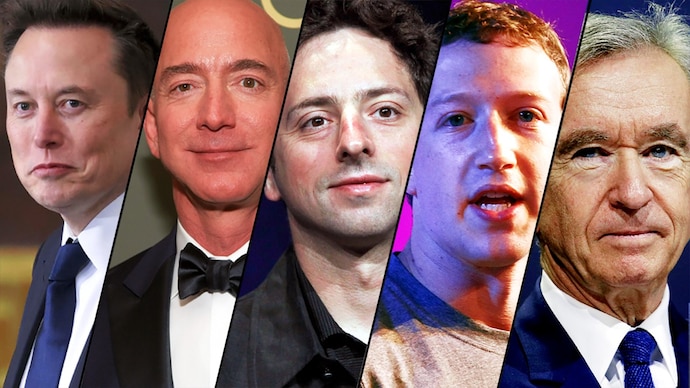
Other billionaires and wealthy business leaders have also openly criticized Trump’s tariff agenda in recent days as fear over its economic fallout gripped markets.
Jamie Dimon, CEO of JPMorgan Chase, warned Monday that the tariffs threatened to raise prices, drive the global economy into a downturn and weaken America’s standing in the world.
:max_bytes(150000):strip_icc()/GettyImages-1835546589-bd8b6187fde445099135e9351a25b68d.jpg)
“The recent tariffs will likely increase inflation and are causing many to consider a greater probability of a recession,” Dimon said in an annual letter to shareholders. “Whether or not the menu of tariffs causes a recession remains in question, but it will slow down growth.”
Billionaire Stanley Druckenmiller, founder of the Duquesne Family Office, an investment firm, said in a post on X Monday that he did “not support tariffs exceeding 10%.” Druckenmiller is worth an estimated $11 billion, according to the Bloomberg Billionaires Index.
Later in the day, billionaire Ken Fisher, the founder and executive chairman of Fisher Investments, said on X: “What Trump unveiled (last) Wednesday is stupid, wrong, arrogantly extreme, ignorant trade-wise and addressing a non-problem with misguided tools. Yet, as near as I can tell it will fade and fail and the fear is bigger than the problem, which from here is bullish.”
Fisher noted that he does not typically comment publicly on presidential actions, “but on tariffs Trump is beyond the pale by a long shot.”

Even Elon Musk — the world’s richest man and top Trump acolyte — said Sunday that he hoped for a “zero-tariff situation” between Europe and the US. In an interview with Italy’s Deputy Prime Minister Matteo Salvini via video link, Musk said he wanted to see an effective “free-trade zone” created between Europe and North America.
Echoing Ackman, Simon MacAdam, deputy chief global economist at consultancy Capital Economics, said businesses were likely to hold off making investments due, in large part, to the “sheer uncertainty” of Trump’s tariff policy.
“If you’re a mid-sized or even a large-cap company, you’re going to be very hesitant about what to do,” he said.

“If those tariffs are going to be negotiated back down again in a few months’ time, then you’d be wasting your time investing potentially hundreds of millions of dollars in new plants… in the US,” he told CNN.
In his post, Ackman said the new tariffs were “massive” and “disproportionate,” saying: “This is not what we voted for.” He called for a 90-day “time out” in which Trump could negotiate with trading partners to “resolve unfair asymmetric tariffs deals.”
Trump has said his tariff agenda is designed to redress years of lopsided trade between America and its partners, caused, in his view, by other countries imposing steeper tariffs on US goods imported into their markets than the US does on theirs.
But investors are clearly not convinced by the wisdom of Trump’s plan. Stock markets in Asia and Europe plunged Monday and futures pointed to another bad day for US stocks, following Trump’s tariffs announcement last Wednesday.
It’ll be tough for Trump to dig his way out of this one

With his chaotic trade policy, President Donald Trump is digging himself into an economic and political hole so deep, it may prove impossible to climb out.
On Wednesday morning, just after markets spent a day reeling from Trump’s on-again-off-again threat to levy extraordinary energy, steel and aluminum tariffs on Canada and to destroy the country’s auto industry, Trump placed tariffs on all steel and aluminum imported from every country around the world, a policy that could drive up prices on a broad range of consumer and industrial goods for Americans. Europe immediately retaliated, adding pressure on a variety of American industries.

Wall Street has grown nervous about the damage Trump’s policies could inflict on America’s still-strong but increasingly wobbly economy. Stocks have plunged, with the Nasdaq falling into correction (a decline of 10% from its recent high) and the S&P 500 flirting with that inauspicious territory.
Trump has been provided with multiple escape routes and off-ramps: His advisers and economic brain trust, including Commerce Secretary Howard Lutnick, Treasury Secretary Scott Bessent and National Economic Council Director Kevin Hassett have been frequent guests on cable and network news shows, on which they called Trump’s tariff policy “fluid” and have noted good progress with foreign countries on negotiations on key disputes like fentanyl and immigration crackdowns.

At times, Trump has appeared to take the hint: He has twice tapped the brakes on Canadian and Mexican tariff plans, pushed back the apparent date in which dollar-for-dollar reciprocal tariffs would go into effect, paused the de minimis exclusion and this weekend delayed dairy and lumber tariffs that he said would go into effect by now. And on Tuesday, officials from Canada and the United States agreed to meet later this week to negotiate their trade disagreements, a potential detente in an escalating trade war.
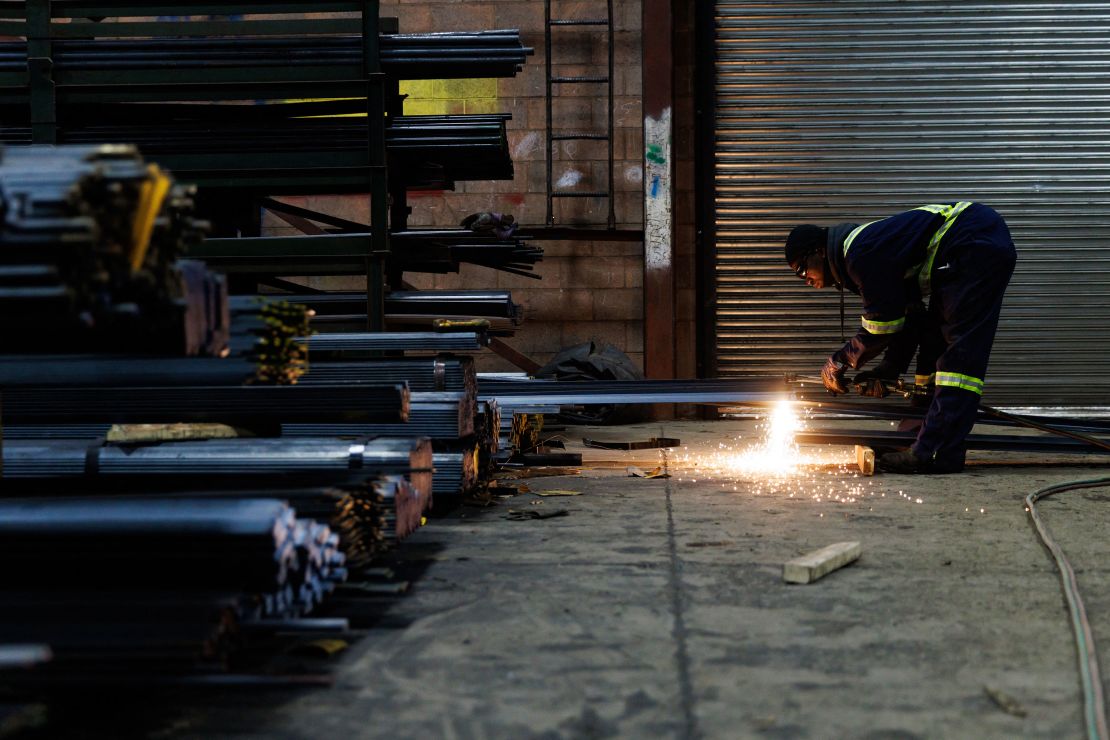
Cole Burston/AFP/Getty Images
But it seems as though Trump simply can’t help himself. Just when you think he’s out, he pulls himself back in. Trump has become addicted to tariffs because of the kind of concessions he can gain from them: In exchange for a threatening social media post and a promised meeting, Ontario backed away from punishing electricity surcharges.
“The president is in a tight spot, and every tariff (or threatened tariff) makes his position more difficult,” said Simon Johnson, professor of global economics and management at MIT. “If he keeps going in this direction, prices will rise and the economy will slow even further.”
Wall Street, Corporate America and consumers are growing fed up with the routine.

“Investors are concerned this will become an own-goal, manufactured economic slowdown,” said Art Hogan, chief market strategist at B. Riley Wealth Management. “We don’t know what the endgame is.”
If he’s not careful, Trump could seriously harm America’s economy with the higher prices tariffs could inflict on businesses and consumers – ironic for a president who was elected because issue No. 1 for Americans was an inflation crisis.
“For anyone who voted for Donald Trump on his promise to lower prices, it’s going to be a shock and potentially infuriating that prices haven’t gone down – and instead, they’ve gone up,” said Scott Lincicome, vice president of general economics at the Cato Institute’s Stiefel Trade Policy Center. “I don’t see an economic or political way out of this.”
The inflation and recession conundrum
But if Trump is looking for a “win” from tariffs, there’s this: His trade policy could shock the economy so severely that it would finally kill America’s inflation problem.
It could be a painful pill to swallow. But Speaker of the House Mike Johnson hinted at that possibility Tuesday when he defended Trump’s policies as a necessary “shake-up.”
“This is what’s required in my mind to start the process of repairing and restoring the American economy,” Johnson said. “I believe that the strategy is going to work.”
Consumer spending makes up more than two-thirds of America’s economy, and the threat of tariffs has already spooked Americans. If they stop spending, they could slow the country’s economic engine – and bring prices into check as demand sinks.
Retailers are warning that could be starting to happen. Walmart, Target, Kohl’s and Dick’s all predicted on recent earnings calls that a consumer pullback is on the horizon because of economic uncertainty caused by Trump’s tariff threats. The S&P 500 retail index (XRT) was at a 52-week low Tuesday.
Delta cut its profit forecast in half Monday after warning that economic uncertainty was leading potential flyers to reconsider their travel plans. And a key measure of small business uncertainty surged to the second-highest level since 1973, according to a National Federation of Independent Business report on Tuesday.
To be clear: A recession isn’t around the corner, but the threats are rising. Goldman Sachs increased its recession chances to one-in-five. And Former US Treasury Secretary Larry Summers told CNN Monday there is a “real possibility” of a recession caused by massive uncertainty over Trump’s policy.
“The just announced tariffs on Canadian steel and aluminum are the worst trade policy yet. Increasing the price of key inputs for the US manufacturing industries–who employ 10 million people–is what a U.S. adversary would do,” Summers posted on X Tuesday. “It is a self-inflicted wound to the U.S. economy.”
No one wants a recession. But if one were to happen, the benefit, if there was one, could be that America’s persistent inflation crisis could be solved.
“It’s hard to want a recession, but I think that’s the only way tariffs would not be inflationary,” said The Liscio Report’s Philippa Dunne. “It’s such a sad situation, because the people who are struggling and voted for him will be hurt.”

Trump’s aides have downplayed recession fears, suggesting instead that the new tariffs will cause momentary “disruption” as global trade is realigned toward the United States.
White House press secretary Karoline Leavitt on Tuesday defended Trump’s tariffs as a necessary measure to save the US economy.
“Tariffs are a tax cut for the American people,” she said during a press briefing, arguing that tariffs are needed to bring production back to the United States and punish countries that have taken advantage of the US in the past.
But if Trump keeps passing up off-ramps, he may have little choice.

“The reality is Trump has attached himself to tariffs. He has pushed to the forefront that tariffs increase prices. The cake is baked unless the tariffs go away,” said Lincicome. “But the only way inflation drops from all of this is if we tip into a recession.”.
Trump’s lifelong belief in tariffs is about to face its acid test

President Donald Trump’s lifelong belief that tariffs can make the United States even richer by forcing other nations to bend to his demands is only being reinforced by the early skirmishes in his trade wars.
But this worldview is facing its acid test at a moment when Americans are about to feel its painful consequences.
Treasury Secretary Scott Bessent will meet with Chinese officials this weekend in neutral Switzerland, a venue that will lend an echo of US-Soviet Cold War summits to the most serious economic showdown yet between the two 21st-century superpowers.

The talks, which will also include US Trade Representative Jamieson Greer, represent the most critical moment in the trade wars so far. Global markets will hope for at least a temporary de-escalation in a clash that Trump escalated in the first place with his punishing 145% tariff on Chinese goods.
But Trump’s strategy and rhetoric in recent days are likely to complicate Bessent’s assignment, since the president is showing that his faith in tariffs is undimmed by a dose of negative US growth and signs of a looming supply crunch.
In fact, he’s becoming more set in his belief not just that wielding massive trade penalties against foreign countries is the right thing to do, but also that it’s working.
“They want to meet,” Trump said of Chinese leaders in the Oval Office on Tuesday. “They’re doing no business right now, and those ships are turning around in the Pacific Ocean … by not trading, we’re losing nothing.”
Investors, business leaders and consumers will hope the president will take a quick, face-saving exit out of his trade wars. But Trump’s statements suggest that tariffs may not be the means to an end, but the end itself. And while trade deals with the US are possible, the terms for foreign nations are likely to be tough and may never result in a return to the low-tariff global economy of the past.
Despite days of predicting a flood of trade agreements are imminent, theadministration has yet to announce any new breakthroughs, so there is no real prospect of tariffs being lifted any time soon.
Trump’s volatility and record of changing his mind on a dime mean that none of his statements should ever be regarded as definitive. And the gathering storm caused by his policies as the threat of a recession grows and Americans begin to see shortages in stores could leave him no choice but to step back.
The talks with China will be key to establishing whether a soft landing is possible for the trade wars — perhaps avoiding a major economic slowdown.
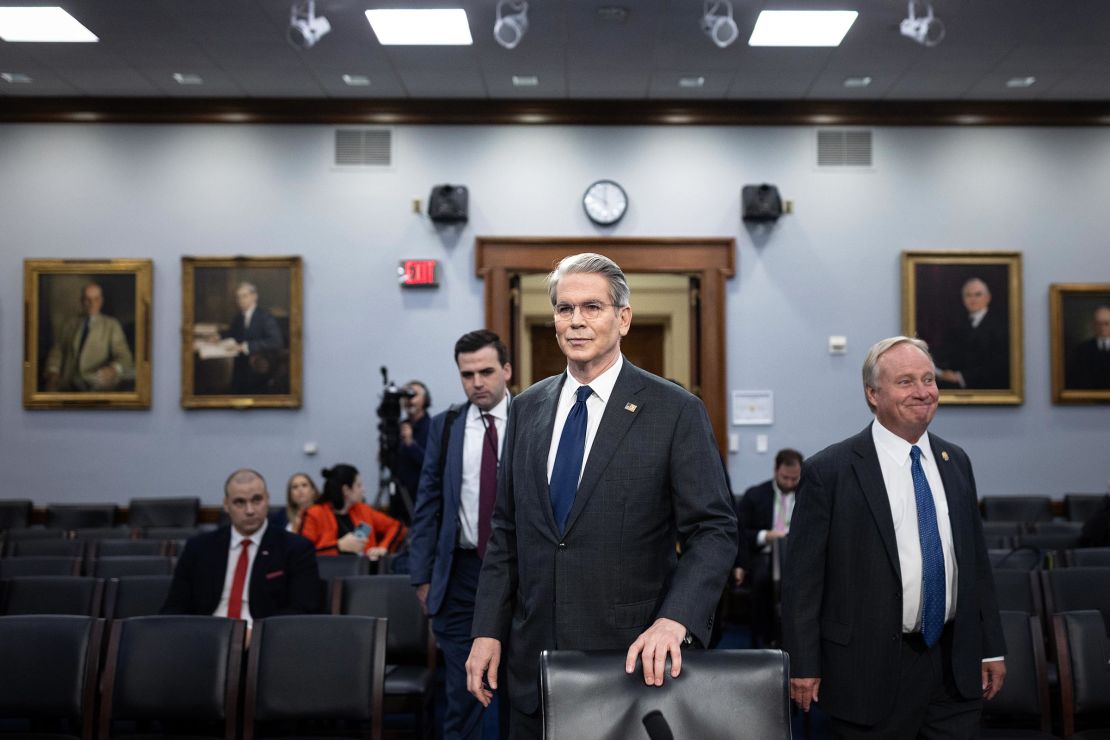
Tom Brenner/The Washington Post/Getty Images
Bessent told Fox News on Tuesday that his initial plan is to try to cool the confrontation and that the talks with Chinese officials represent the “missing piece” in the administration’s strategy and will take place on a trip during which he had previously planned to talk trade with Swiss officials.

But China typically favors intricate trade talks that play out for months. And Bessent cautioned that he didn’t expect to be discussing “the big trade deal” yet.
Anda growing number of Trump’s comments and social media posts suggest that he’s not yet interested in changing course a third of the way through a 90-day pause in reciprocal tariffs.
On Tuesday, he played down expectations for a flurry of trade deals that he and senior aides had been predicting were imminent for days — moments after his treasury secretary said on CNBC that he expected to announce deals with top trading partners “as early as this week.”
The president seemed frustrated at the suspense he’d helped to build. Perhaps this means that trade talks are going more poorly than the administration is ready to admit. Or Trump could have his eye on a different endgame.
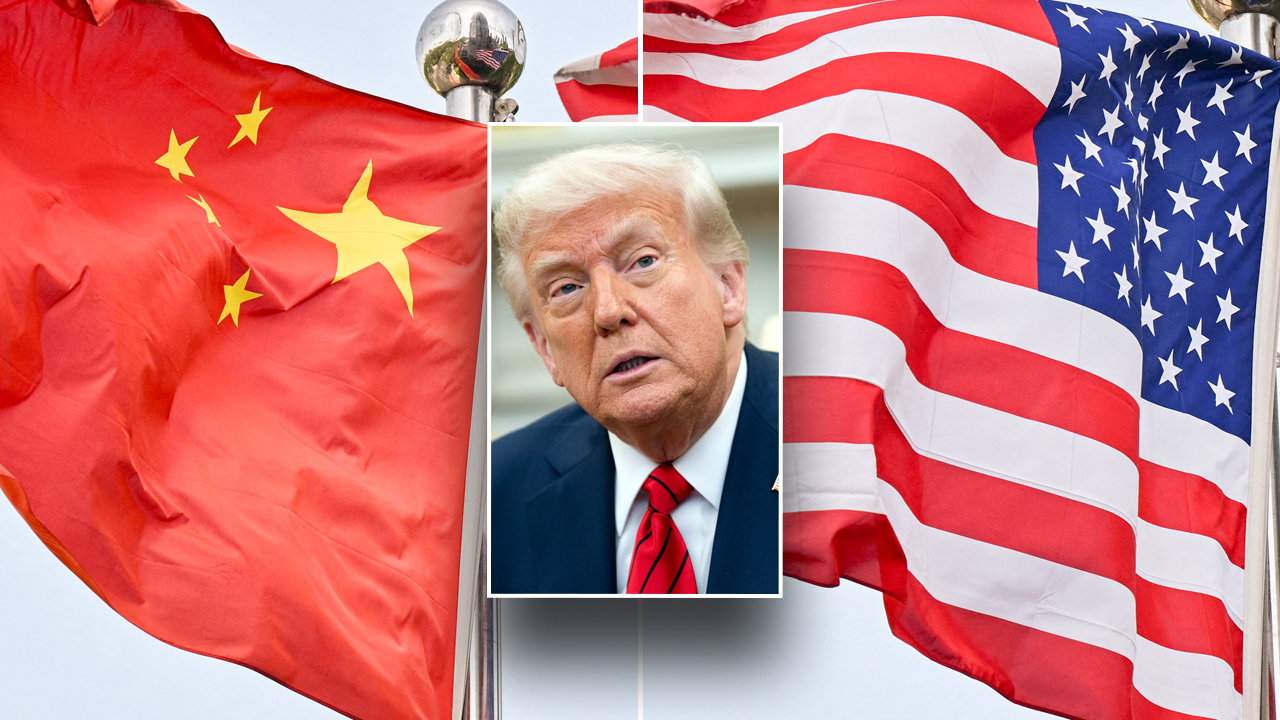
“So, I wish they’d keep — you know, stop asking, ‘How many deals are you signing this week?’ Because one day, we’ll come and we’ll give you a hundred deals,’” Trump said, before trying to clarify that his preferred outcome of the trade deals may be permanent protectionism. “And I think my people haven’t made it clear. We will sign some deals, but much bigger than that is, we’re going to put down the price that people are going to have to pay to shop in the United States.”
Trump as the world’s ‘luxury store’ owner
In Oval Office talks with Canadian Prime Minister Mark Carney, the president explained his vision of operating as a retailer who sets the price for each individual customer. In this scenario, tariffs are not an attempt to draw countries into talks to unlock acceptable deals for both sides. Instead, they are a way to fix a levy for the right to do business with the US that would depend on how far each nation sacrifices their own economic interests to boost America’s. “Think of us as a super-luxury store, a store that has the goods. You’re going to come and you’re going to pay a price, and we’re going to give you a very good price,” Trump said.
This means the old world is gone.
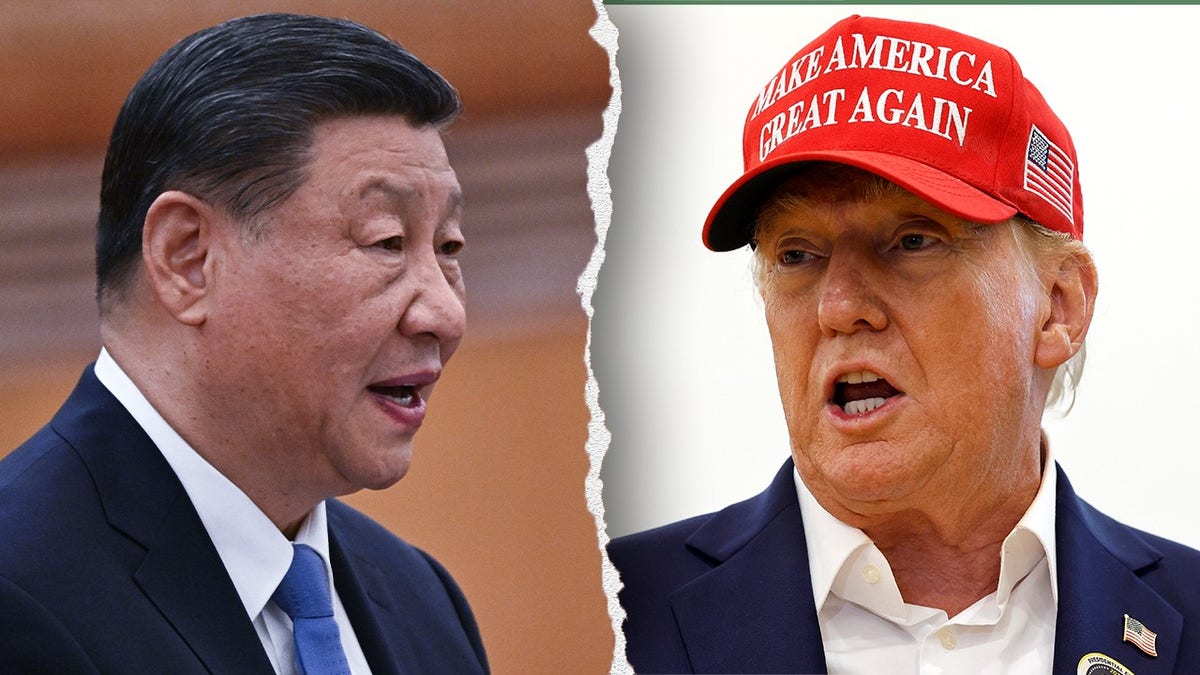
Trump also said last month that his 145% tariff on China will “come down come down substantially, but it won’t be zero.” And he told Time Magazine in a recent interview that he’d consider it a “total victory” if tariffs — an economic device he’s viewed with almost mystical reverence for decades — are at 50%.
This may require adjusting expectations on global markets and in foreign capitals. Perhaps Trump falls short of his long-shot goal of returning manufacturing to the United States to levels in place before the entry of nations like China and Vietnam into the global economy in the late 20th century. But it’s increasingly clear that, at least while he’s in the Oval Office and controls what is still the world’s most powerful economy, the days of untamed globalization are over.
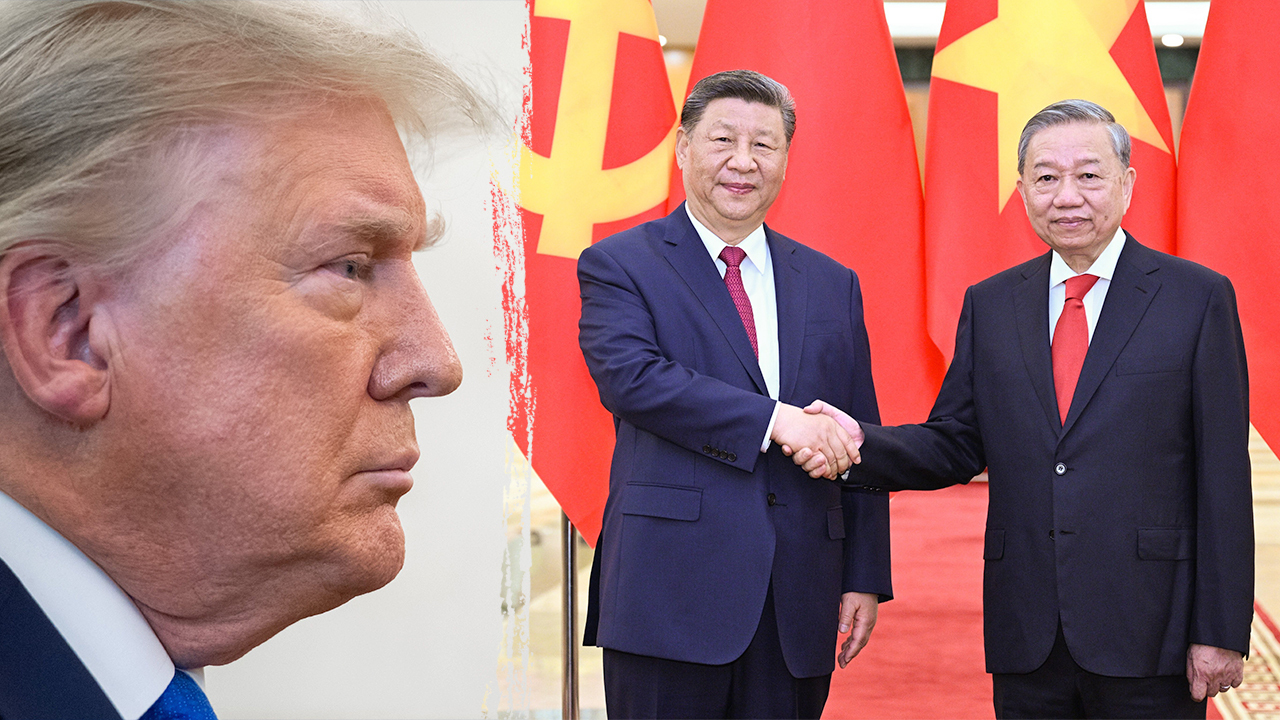
Moreover, it’s becoming clear that the president doesn’t see any future deals as just a reset for the global trading system. He wants to transform it so that the US becomes a manufacturing and exporting giant but doesn’t buy things from abroad. “They have to sign deals with us,” the president said. “If they want a piece of our market — we don’t want a piece of their market. We don’t care about their market. They want a piece of our market.”
This is a mind-bogglingly impractical strategy, even if it shows unshakeable belief in the potential of the American people and the country’s industrial machine. It ignores the fact that millions of Americans like to buy low-priced foreign goods that would be more expensive if made in the US. Such purchasing power has improved the lifestyles of the middle and working classes, who can now afford items like flat-screen TVs and other electronics as well as essentials such as clothes. Trump’s strategy also ignores that other nations make things global consumers want to buy, too — not just staples but luxury goods that are not endemic to the US.

A looming age of austerity?
The president’s thinking may be radical, but it does track with other recent comments — including his warning that American children would have fewer and more expensive dolls and pencils — that suggest the president foresees a new age of austerity despite his vows to make America rich again.
In this sense, his comments on trade alongside Carney, who was just elected to lead the country that buys more US products than any other, offered a striking glimpse into how he thinks.
Having a president set the price of access to the US market would be an extraordinary way to run a 21st-century economy. It may also be an illegal and unconstitutional use of executive power.

And since Trump has a foggy understanding of how how tariffs work — he sees them as a massive source of revenue for the government rather than a huge tax on American consumers — his approach would also come with serious risks for the US economy.
Attempts to artificially control the price of goods usually causes shortages and supply chain issues, and they can spike inflation. Such a top-down system is also prone to manipulation. Trump has already granted temporary tariffs carve-outs on some tech products, including iPhones, and to parts manufacturers that supply the auto industry after lobbying from CEOs. Such interactions allow the president to take the spotlight and move the chess pieces around the board — a common thread in many of his policies.
And in an administration with a remarkably cavalier attitude to ethics, such as system is ripe for corruption. What is to stop a company or country offering Trump a favor or inducements that boost his companies to get preferential treatment?
“We don’t want steel from Canada ‘cause we’re making our own steel,” Trump said Tuesday. “We really don’t want Canadian steel and we don’t want Canadian aluminum and various other things because we want to be able to do it ourself.”
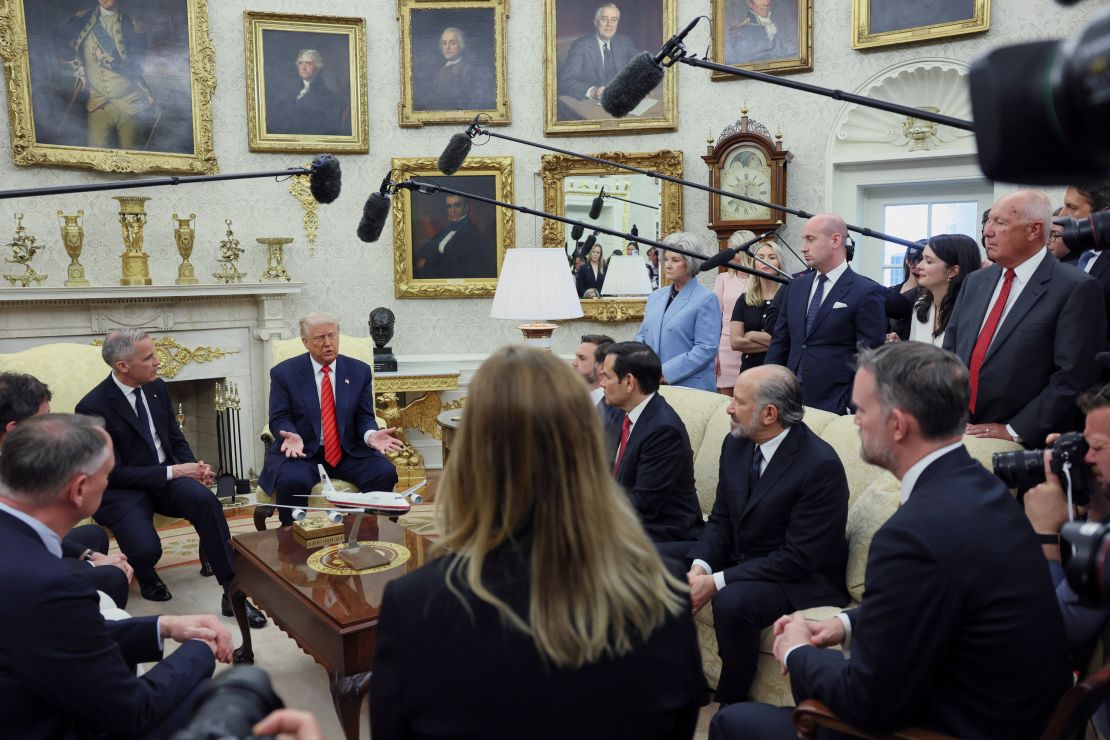
Leah Millis/Reuters
Such aspirations show that Trump is not simply pushing a vision of self-sufficiency; he’s envisioning a real attempt to drive other nations out of business to make them dependent on America. He may have soft-pedaled his territorial claim on Canada with Carney in the room, but his trade policies would have a similar effect.
“We don’t really want cars from Canada. And we’ve put tariffs on cars from Canada, and at a certain point, it won’t make economic sense for Canada to build those cars,” Trump said, in a comment that rhymed with the rationale of his “America first” foreign policy — to leverage US might to exert control over smaller, less powerful nations.
“We’ve been ripped off by everybody for 50 years, for 50 years, and we’re just not going to do that anymore. We can’t do that, and we can’t let any country do that to us,” Trump said.
He’s being saying this for decades: as a businessman, as a candidate and now as a second-term president. It’s a narrow and cynical view of the world. But it might be time for Trump’s critics to accept that he really means it.
Scandal, deals and a hostage release: Just another day in Trumpland

It was just another regular day in the second Trump administration.
An American hostage tasted freedom after a surprise breakthrough with Hamas.
An unprecedented ethics storm rocked the presidency.
Officials claimed a huge “deal” with China on trade that looked a lot like a classic climb-down.
And President Donald Trump, in a bid to cut drug prices for Americans, challenged longtime Republican economic dogma.
With all that under his belt, Trump headed off on a trip to Gulf Arab states on a mission to drum up investment for the US that told a story about both his transactional money-obsessed administration and a new locus of global power.
Trump snubs Israel – and gets the last living US hostage out of Gaza
Trump’s juggling of critical global and domestic issues defines a presidency that constantly scans the horizons for “wins” that can animate a day with photo-ops. But the show is often erratic, reflecting his own volcanic temperament and disregard for constitutional impediments. And no one can be sure what happens next in a Washington maelstrom that is part of his appeal for supporters.
But Trump’s flexibility and willingness to drop everything for a deal can open some avenues that might be closed to more conventional presidents.
On Monday, he signed off on a deal to bypass America’s ally Israel and negotiated with Hamas, which committed the October 7, 2023, attacks. The initiative, worked out with Egypt and Qatar, freed the last living American hostage in Gaza, Edan Alexander. The scenes of joy as Alexander greeted his family would crack the hardest of hearts – even though thousands of Palestinians killed in Israeli bombardments or facing a humanitarian crisis in Gaza will never know similar reunions.

The move also piled pressure on Prime Minister Benjamin Netanyahu – who prioritizes the defeat of the ruthless Islamist group over more hostage releases – to do something similar. Trump is making a habit of snubbing Netanyahu. He shocked Israel by opening nuclear talks with Iran. And while he’s visiting Saudi Arabia, Qatar and the United Arab Emirates this week, he doesn’t plan a stop in the Jewish state.
Alexander’s release was a much-needed triumph for Trump’s envoy Steve Witkoff, whose global peace shuttles haven’t yielded much peace so far.
But it might be an isolated episode, since there’s no sign of a realistic US plan to end a war that has killed tens of thousands of civilians. Trump’s earlier wild suggestion was to purge Gaza of Palestinians so he can build the “Riviera of the Middle East.” And Hamas has not agreed to cede security control of the wrecked enclave – the one concession that might prompt Israel to agree to end the war.
But Brett McGurk, a former top Middle East policy official for administrations of both parties, told CNN’s Jake Tapper that the release – apparently timed by Hamas to coincide with Trump’s Middle East trip – was a “great moment, a great day.” He added: “I give the administration credit for (continuing) pushing; you never give up.”
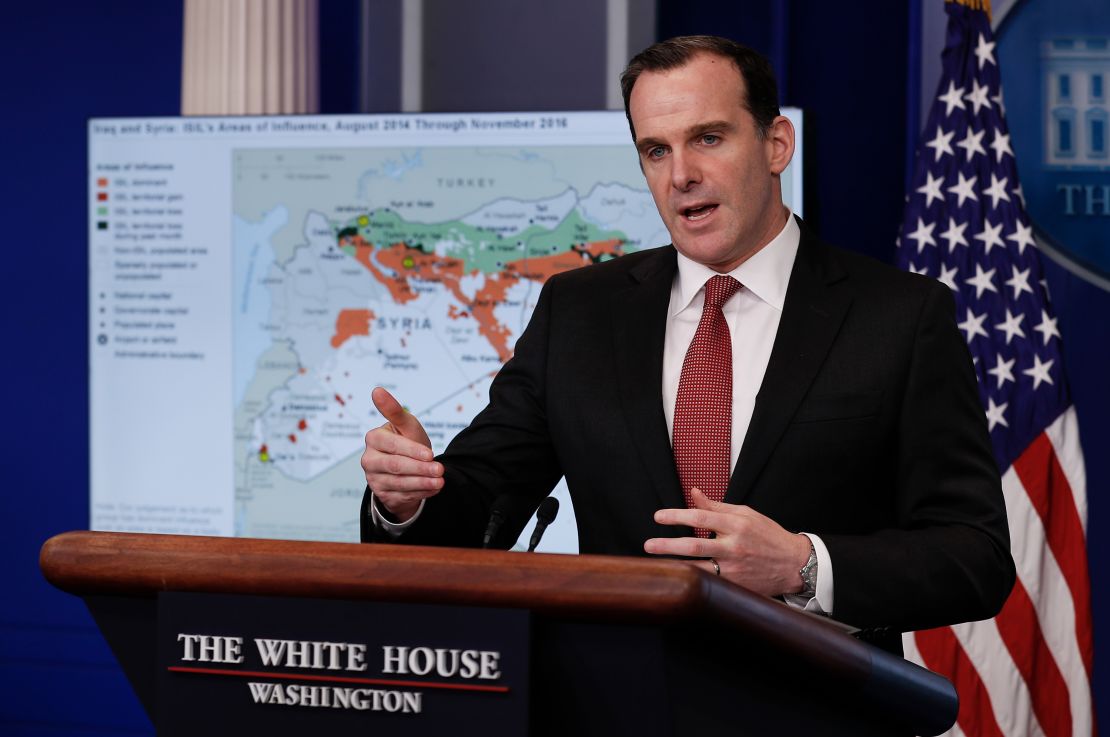
Carolyn Kaster/AP
An ethics scandal of jumbo proportions
If Alexander’s return showed compassion and diplomatic dexterity by the administration, a brewing storm over Trump’s plan to replace jets used as Air Force One highlighted his historic and brazen defiance of basic ethical standards.
His defense of an idea for Qatar to gift the Defense Department a luxury $400 million 747, which would revert to his presidential library once he leaves office, ignored fears he’d be compromised by a foreign government. And it underscored concerns that he’s appeared to use his second presidency to enrich his businesses – from his firm’s expanding portfolio of luxury properties abroad to his lucrative $Trump meme coin.
“I would never be one to turn down that kind of an offer. I mean, I could be a stupid person and say, ‘No, we don’t want a free, very expensive airplane,’” Trump said, blind to the ethics morass the Qatar plane deal could cause.
For starters, the flying palace might infringe the emoluments clause of the Constitution, which prohibits a federal official from accepting a gift or payment from a foreign government.
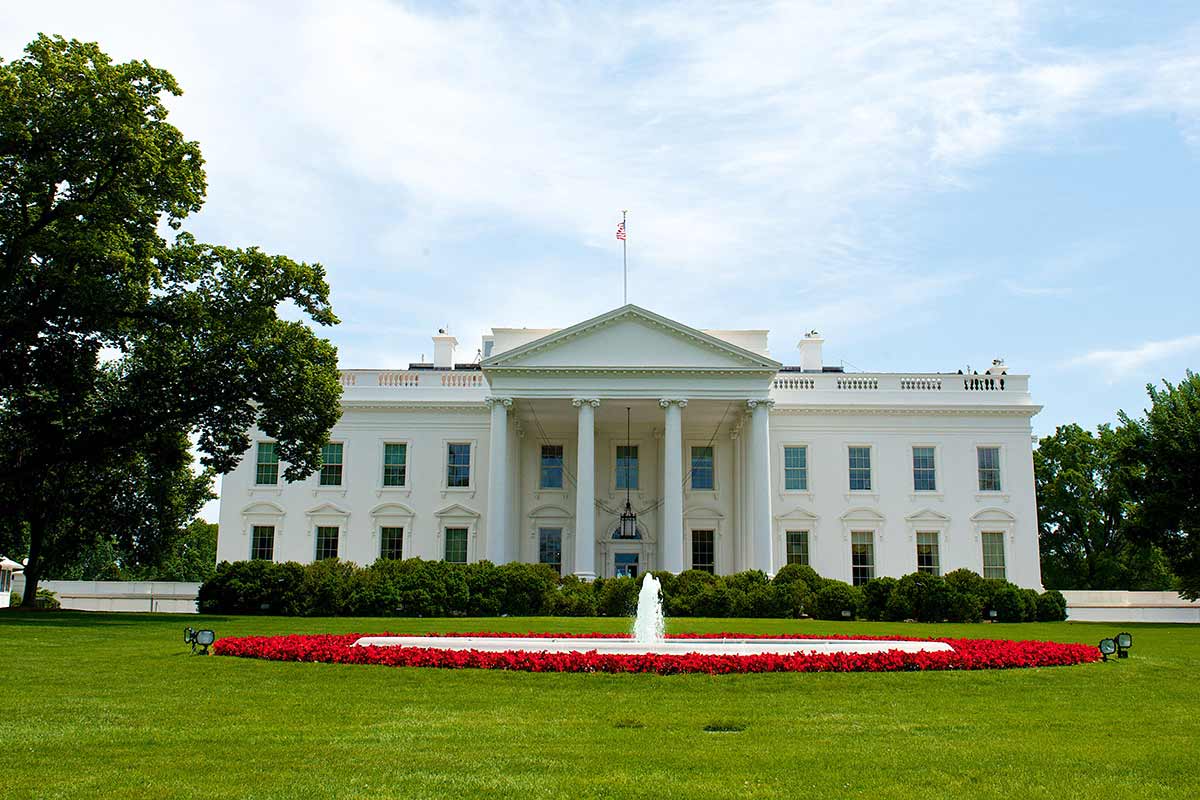
White House press secretary Karoline Leavitt insisted that every American knew Trump “only works with the interests of the American public in mind.” This is quite a claim, given that Trump’s first major foreign tour of his second term is swinging through a region where his family is launching new golf and hotel projects.
Most presidents might consult the deliberations of the founders in the Federalist Papers for advice on this question.
But Trump turned to the late ‘Slammin’ Sam Snead, no constitutional scholar but a golfer who won seven major championships in the 1940s and 1950s.
“He was a great golfer. And he had a motto: When they give you a putt, you say, ‘Thank you very much,’ you pick up your ball, and you walk to the next hole,” Trump said. “A lot of people are stupid. They say, ‘No, no, I insist on putting it,’ and then they putt it, they miss it, and their partner gets angry at them,” Trump told reporters during a mini-meltdown at the White House.

The moral of the story: Take what you can get, even if it’s not according to the strictest interpretation of the rules.
To get the new plane ready to carry a president, Trump would have to spend millions of taxpayer cash on military upgrades and communications equipment. And the Secret Service would have to strip it to the screws to flush out any bugs planted by foreign intelligence agencies. There’s no guarantee that it would enter service before two multibillion-dollar budget-busting and long-overdue 747s already earmarked to serve as the presidential ride. But Trump’s vanity in pining for a replacement for the 1990s jumbos currently in service is certainly in character.
It’s also rather embarrassing that the world’s mightiest superpower would rely on an ally to get a new plane – manufactured by an American company.
But Trump’s quest for a new Air Force One could turn into a political liability.
Ex-House Speaker Kevin McCarthy advised him to drop it. “Let’s let Boeing finish that – the new planes (are) coming in,” McCarthy told Zain Asher and Bianna Golodryga on CNN International. The former California Republican representative added: “I think America can afford their own plane and build their own Air Force One.”
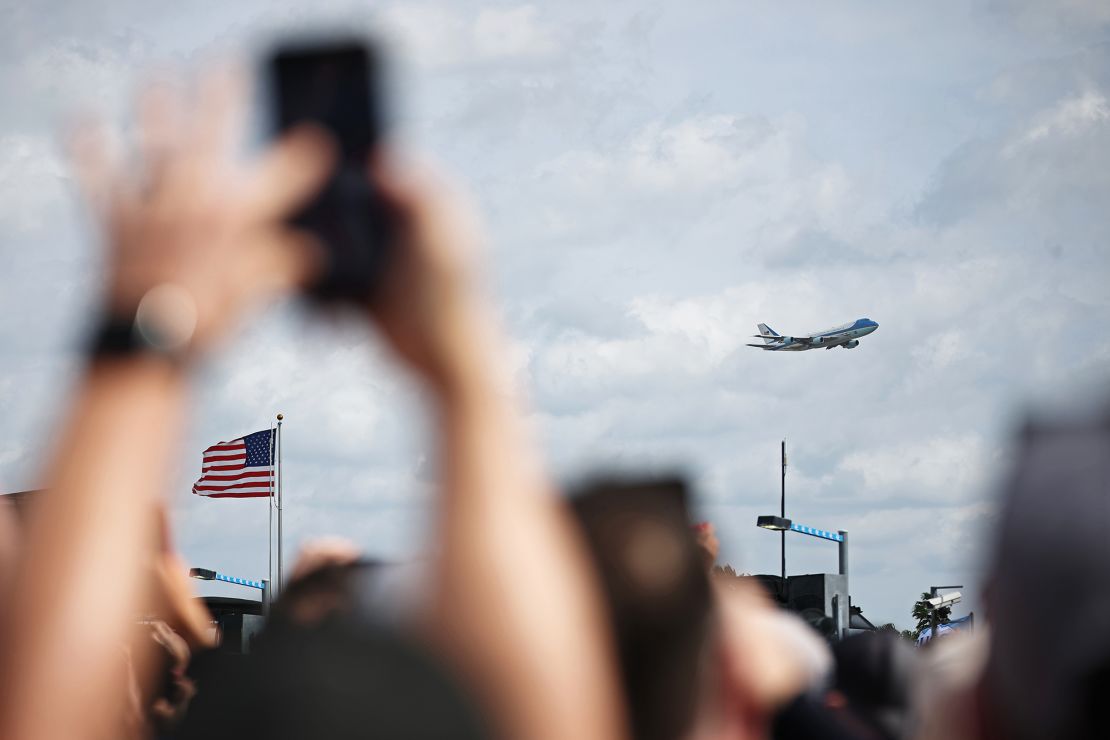
Jared C. Tilton/Getty Images
A deal forged on patio sofas
Trump started Monday by boasting about a breakthrough in China trade talks in Switzerland.
“We achieved a total reset with China,” the president said. What actually happened was that both sides stepped back from the brink of a showdown that could have destroyed the global economy – which Trump caused.
In another perennial Trump move, there’s yet another deadline, of 90 days, to negotiate concessions while mutual tariffs are reduced by 115 percentage points.
US Trade Representative Jamieson Greer said the agreement, largely negotiated at the residence of the Swiss ambassador to the UN in Geneva “under a big, beautiful tree on a set of patio sofas,” is a first step toward balancing trade.

Yet the deal, hammered out under the stewardship of the increasingly influential Treasury Secretary Scott Bessent, also looks like a Trumpian retreat – only a week after the president was warning parents that their kids would have to make do with just a couple of dolls as new restrictions on China kicked in. Beijing appears so far to have made no meaningful concessions. And Trump has rolled back his 145% duties on Chinese imports while still saddling US consumers with a 30% tariff on those goods.
“It’s very clear that it’s President Trump who blinked,” former Treasury Secretary Larry Summers told CNN’s Kasie Hunt. “Sometimes it’s good to blink; when you make a mistake it’s usually best to correct it and retreat even if it’s a little bit embarrassing.”
Trump justifies his use of tariffs – a device that deepened the Great Depression nearly a century ago – by the need to reverse the tide of globalization that left many working Americans stranded.
That same rationale lay behind another policy move Monday that showed how a populist president sometimes trashes Republican economic orthodoxy. Trump signed an executive order designed to bring the price Americans pay for prescription drugs in line with prices abroad, where governments with state health care systems can negotiate down costs.
Health and Human Services Secretary Robert F. Kennedy Jr. pointed out the political leap the president was attempting.
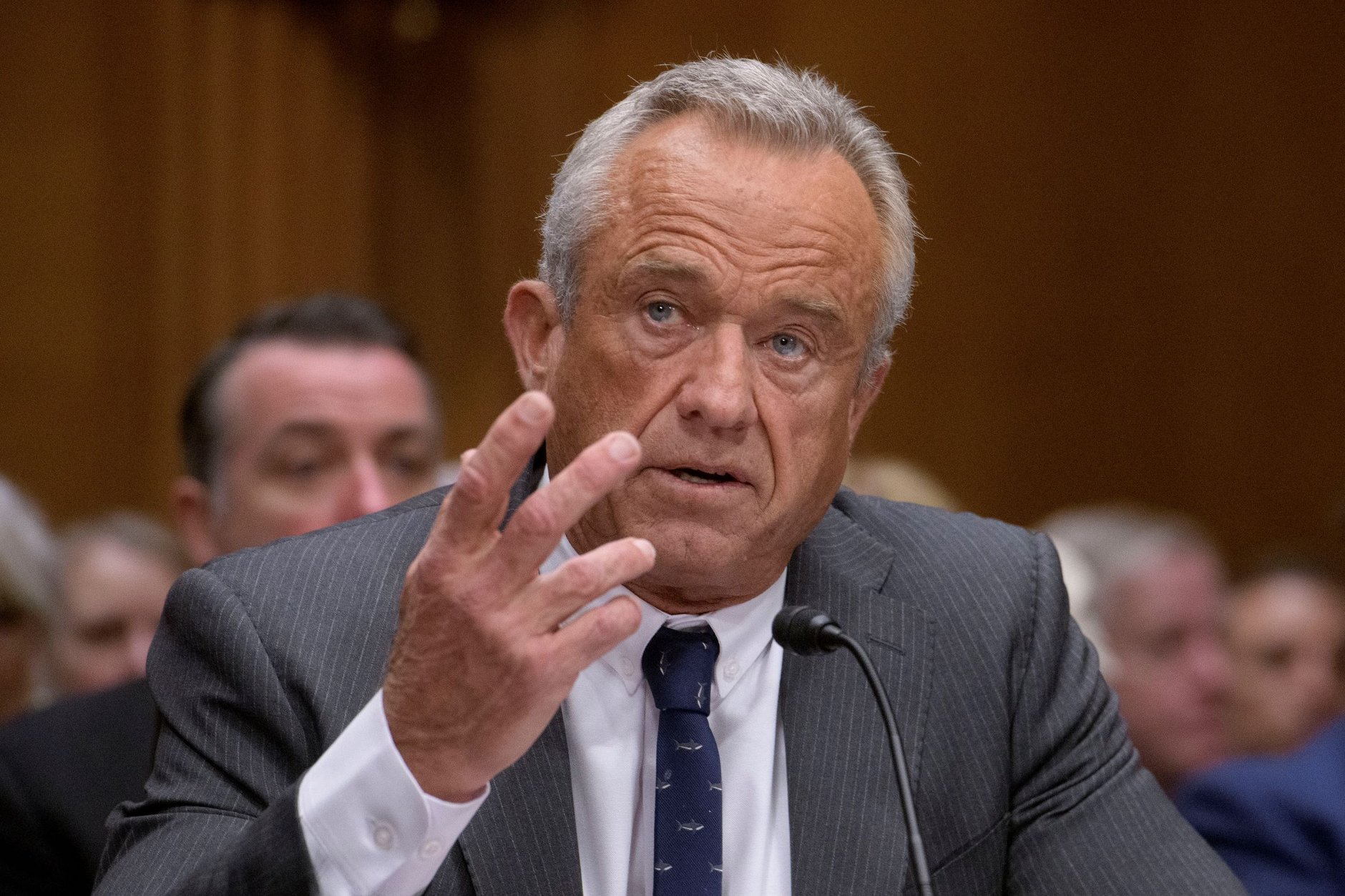
“This is an extraordinary day. I grew up in the Democratic Party, and every major Democratic leader for 20 years been making this promise to the American people,” Kennedy said. “It’s one of these promises that politicians make to their constituents knowing that they’ll never have to do it.”
“We now have a president who is a man of his word, who has the courage,” Kennedy added.
But Trump may fall short. A similar effort in his first term was blocked in the courts. And the power of pharmaceutical lobbyists in Congress means that a more permanent change in the law is unlikely.
Still, he keeps flirting with GOP policy heresy. He even suggested the rich should pay more to finance his ambitious tax-cut plan, which he hopes will exclude exemptions for wages earned as tips.
Some of this is positioning for political effect. But after three months in which the president’s approval ratings plunged, a Trump voter might consider a hostage release, a bid to cut drug prices and a trade deal with China as a good day’s work.
But perhaps the less said about the Qatari jumbo jet, the better.
















:max_bytes(150000):strip_icc():focal(2988x1325:2990x1327)/peo-pamela-anderson-skirt-sweater-sneakers-tout-c61945fc5b0a416d883d85359cbfd888.jpg?w=1200&resize=1200,0&ssl=1)






















:max_bytes(150000):strip_icc():focal(999x0:1001x2)/catherine-ohara-013026-7-4b5b413a646d4f15a1fd15ac8b933811.jpg?w=1200&resize=1200,0&ssl=1)







